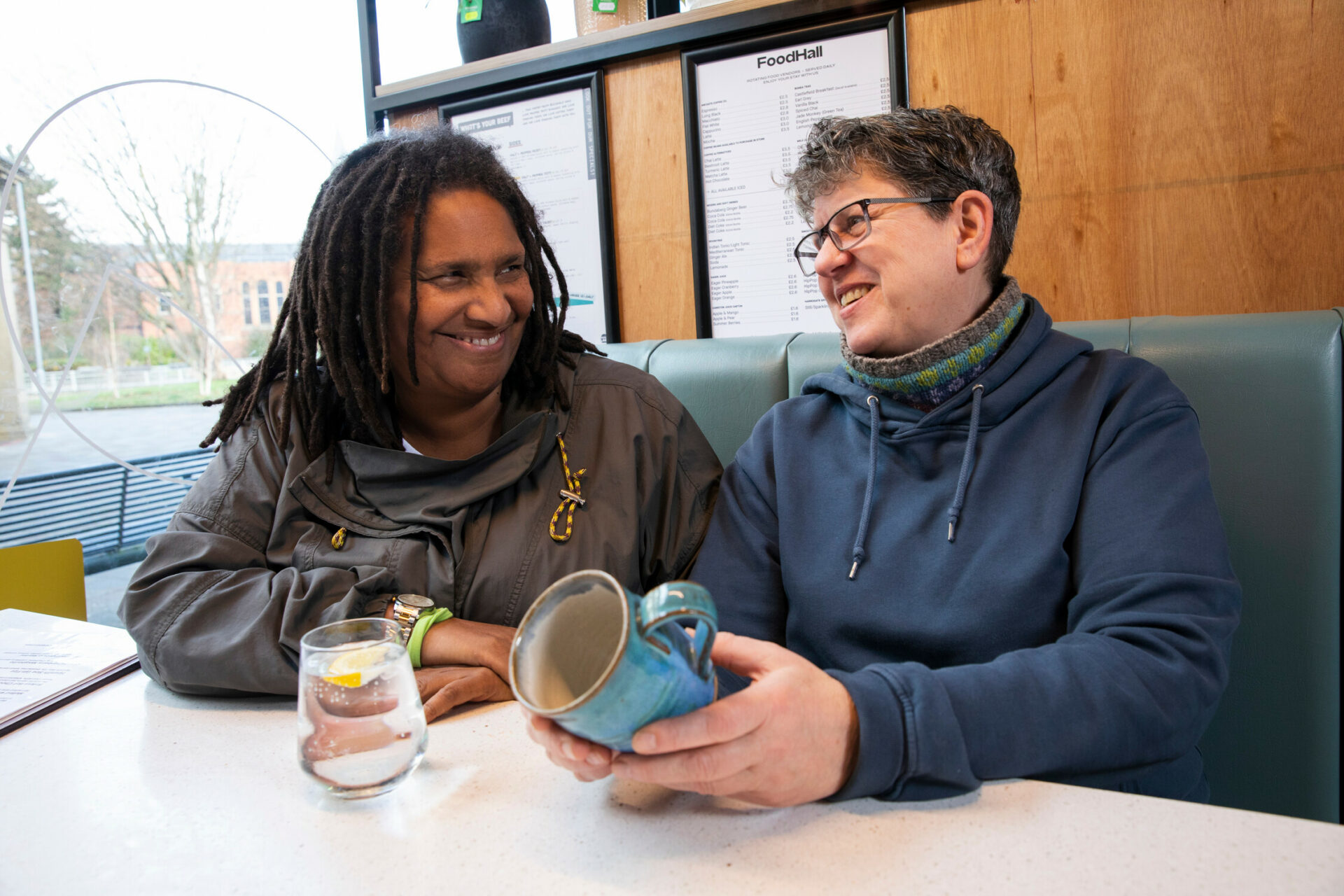“Thomas – you need to look at a protein structure from lots of different points of view to understand how it works”. This was some of the most valuable advice I ever got when I was doing my PhD.
I was studying how proteins stick to one another to form complexes at UCL in London. Proteins are ‘nature’s robots’. They do everything from fighting infections to carrying oxygen around the body.
At the time I was a bit fixated on looking at protein structures that had been discovered using one particular technique.
How proteins work depends a lot on their shape. Proteins are a bit like keys. If the shape of a key is out by even a little then it may not work.
To understand the shape of a protein you need to use a number of different techniques and to quite literally look at its structure from a number of different angles.
I actually believe that the same principle is true for mental health. Mental health is complicated. It’s very complicated. I don’t think that many people would disagree with that.
And to make progress in truly understanding and treating mental health problems we will need to use a number of different approaches.
At the McPin Foundation we are beginning to work in areas that we have not worked in before. The aim of this is to look at mental health problems from a variety of different perspectives.
We hope that this will lead to greater understanding, and ultimately better ways of treating mental health problems.
New Studies!
So what are we going to be doing? Firstly, we will be working with a team from the Institute of Psychiatry, Psychology, and Neuroscience on developing a new version of cognitive bias modification for psychosis.
Cognitive bias modification has received quite a lot of attention in recent years and a multitude of self-help smartphone apps based on this approach have been developed. But, as highlighted by recent Mental Elf reviews, there is a pressing need to carry out further research to assess how well it really works.
We will be providing public and patient involvement into the study.
Secondly, we are currently working with researchers from Cambridge and Oxford on a possible new way of understanding and treating some people with psychosis. There is evidence that around 6% of people that present to services with psychosis have very particular kinds of antibodies in their system.
People who have these antibodies often have symptoms that are very similar to schizophrenia. So much so in fact that people are often treated in mental health services and given antipsychotic medication. Essentially the body is acting as if it is fighting an infection and psychosis soon follows.
Indeed there is a known illness called ‘antibody-mediated encephalitis’ where this is exactly what happens. Crudely put, the end aim of the study is to see if someone gets better when you target the antibodies.
You can find out more about the research by looking at the study website (www.sinapps.org.uk) or by clicking here. We are currently looking for people to join the Lived Experience Advisory Panel for this study. For more details please see the opportunities section of this newsletter.
The third study that we are working on together with researchers from University College London is a study comparing an antidepressant called Sertraline with cognitive behavioural therapy for people with generalised anxiety disorder.
Again we are organising patient and public involvement through a Clinical Advisory Group made up of three people who manage anxiety problems.
These studies collectively fall into a new area of work here at the McPin Foundation that we call ‘mental health sciences’. This area of work complements our more socially orientated research well.
Needless to say, we will put the lived experience of people with mental health problems at the heart of our work in the field of mental health sciences.
This is a new and exciting venture for us. We hope it will take us one step further towards our mission to ‘transform mental health research’.
Thomas Kabir, Public Involvement in Research Manager
